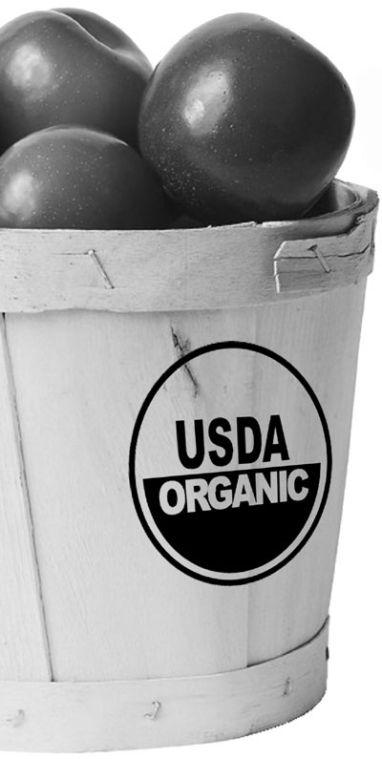When biting into a juicy hamburger, most students usually do not think about what that cow ate before it became a patty. However, recent government regulations may cause them to give this subject some thought.
The U.S. Food and Drug Administration recently passed down standards for determining certification for exactly what “organic food” is.
Organic crops are raised without the introduction of antibiotics and pesticides commonly used in conventional farming. Organic meats come from animals raised on these types of crops.
The new certification for organic foods has been the subject of strict scrutiny during the past 12 years. The regulations, which went into effect in October, are the latest version of an evolving process.
The FDA now requires organic products to have an official seal labeling them either 100 percent organic, meaning they totally were made from organic materials, or simply organic, composed of 95 percent organic materials.
Products that claim to have been made with 70 percent or more organic ingredients will not have an organic label but will have notification that they were made with organic ingredients. Products that fall below the 70 percent mark simply will list that they contain “some organic ingredients.”
According to the Organic Trade Association, the organic food market substantially has grown since 1990.
That year, organic products accounted for a $1 billion chunk of the market. In 2000, organics accounted for $7.76 billion.
Although Louisiana is not well-known for starting health food crazes, recently organic foods have been catching on.
Some University students jumped into the organic trend because they say this type of food is better for their health, even though organic food generally costs more.
“I can buy organic in bulk because it takes less of it to make me feel filled,” said Patrick Holstein, an interior design sophomore. “I don’t mind paying more because I can buy it in bulk, since it is more filling.”
Local health food stores, such as Living Foods, have seen an increase in University students who shop in their stores.
“Stores like ours offer a healthy alternative to a lot of the food that is available on campus,” said Jennifer Dukes, deli worker at Living Foods.
The Louisiana Department of Agriculture applied with the FDA to be the official certifier of organic products for the state. States may have public certifiers, such as state entities, or privately financed certifiers.
The Department of Agriculture will receive official notification in the near future. Kyle Moppert, with the Department of Agriculture environmental division, said the new federal standards essentially are the same as those the state has been using to certify farms since 1994.
“There are 25 organically certified farms in Louisiana. I serve as a facilitator for the farmers so that they can have a network,” Moppert said.
The Department of Agriculture does not endorse organic or conventional farming.
“We are here to help farmers. We do not take a side because we are the regulator for all farming,” Moppert said.
Some University students who are familiar with pesticide processes are concerned about exactly how certifiers will be able to determine absolutely no inorganic products ever interacted with organic products.
“When you factor in wind and rain, it is really difficult to stop pesticides from getting from one piece of property to the one next to it,” said Justin Smith, a landscape architecture senior.
However, the Department of Agriculture already has factored these concerns into its certification process.
“We require strict boundaries between organic and conventional farms,” Moppert said.
Other students are skeptical about organic foods being any healthier than conventional, commercial foods.
“There are no heavily toxic pesticides or herbicides used in conventional foods,” said Pili Paz, a horticulture graduate student. “You should wash off all food before you eat it, whether it is conventional or organic. That should ease people’s worries.”
Organic principles
November 20, 2002






